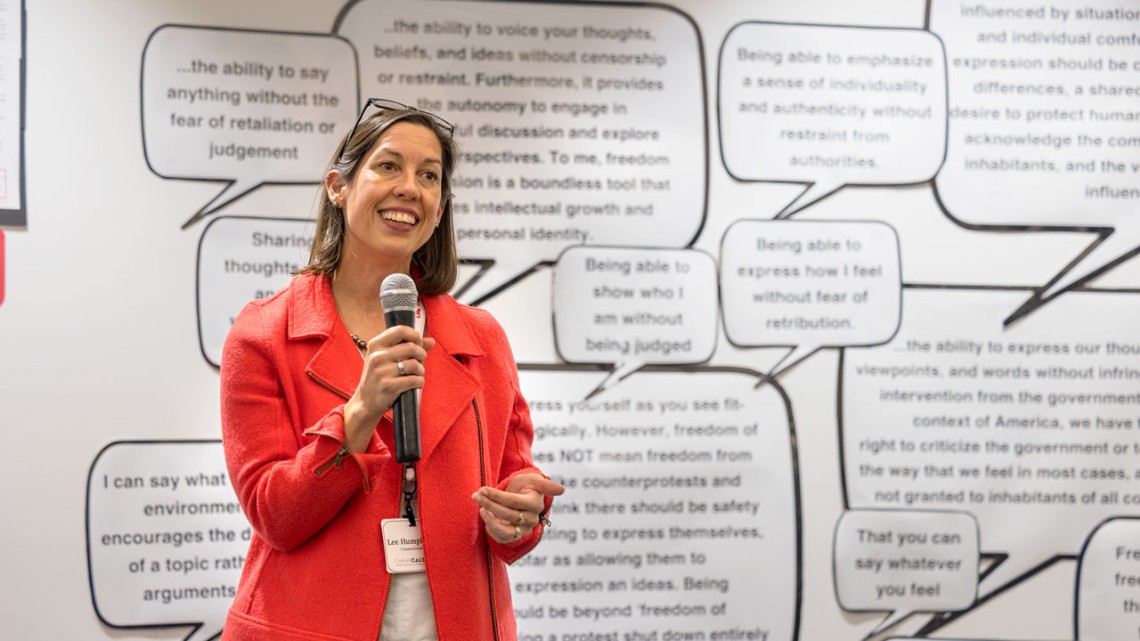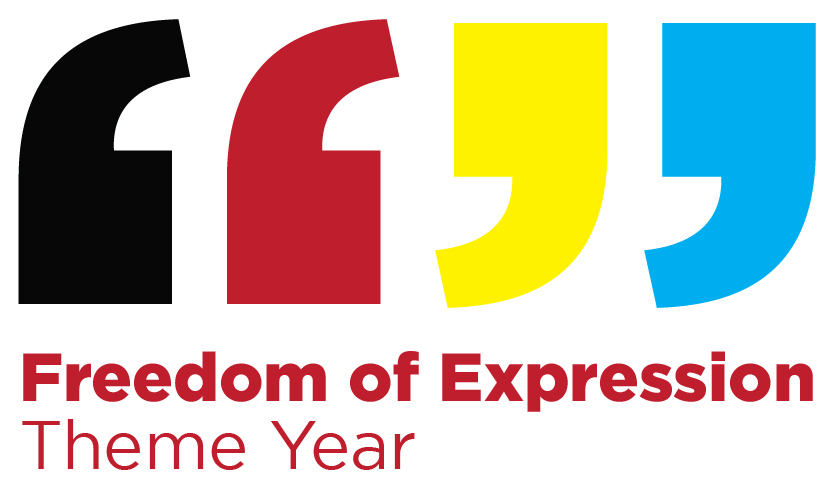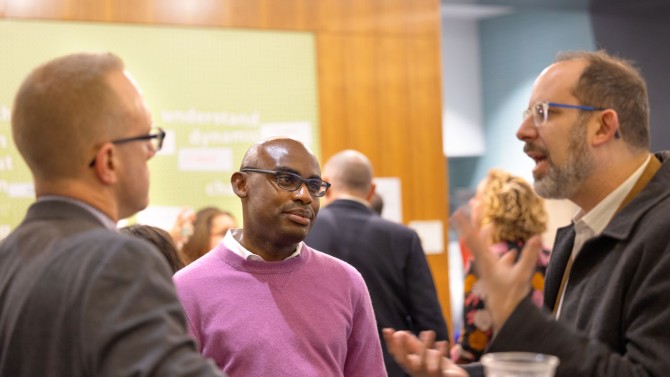
Lee Humphreys, professor and chair of the communications department at CALS, offers her remarks during a closing reception for a symposium on "Freedom of Expression in the Age of Disinformation."
CALS event explores freedom of expression, disinformation
A symposium led by the Department of Communication in the College of Agriculture and Life Sciences (CALS) brought together more than 100 scholars, students and community members to explore tensions between freedom of expression and concerns about the spread of disinformation.
Held Dec. 7-8, the event included guests from across the country and around the world, as well as Cornell experts, who discussed topics such as histories of media and propaganda, content moderation on social media, public opinion as freedom of expression, and how freedom of expression relates to our other core values and responsibilities as a university.
“Academic freedom is a bedrock tenet at Cornell, and our commitment to free and open inquiry lies at the core of our responsibility as educators, researchers and global citizens,” Benjamin Z. Houlton, the Ronald P. Lynch Dean of CALS, said in welcome remarks to participants.
Brown University’s Claire Wardle, an expert in the field of misinformation, verification and user-generated content, delivered the plenary address for the event, titled “Freedom of Expression in the Age of Disinformation” and sponsored by the university’s committee on the Freedom of Expression theme year, the Department of Communication, the Roper Center for Public Opinion Research and CALS.
“The symposium showcased for me that we as a learning and scholarly community can simultaneously uphold the freedom of expression and being a community of belonging,” said Lee Humphreys, professor and chair of the communication department.
Houlton emphasized the importance of continuous dialogue as we confront the challenges of our time. He praised the Department of Communication as an epicenter of collaboration on campus, where faculty conduct research on the influence of social media, communication of risk and scientific uncertainty, and the role of identity in meaning-making.
In conjunction with the event, students created a “living archive” as part of a research class that Humphreys co-led with Ashley Shea, a Mann Library instructional librarian and doctoral student in communication. Their project, Freedom of Expression in the Archives, explored the historical manifestations of tensions surrounding freedom of expression at Cornell.
“We were really able to embody freedom of expression where people trusted each other enough to express their different perspectives,” Humphreys said. “We could make mistakes, change our minds, admit we weren’t sure, ask questions and listen.”
Media Contact
Get Cornell news delivered right to your inbox.
Subscribe


